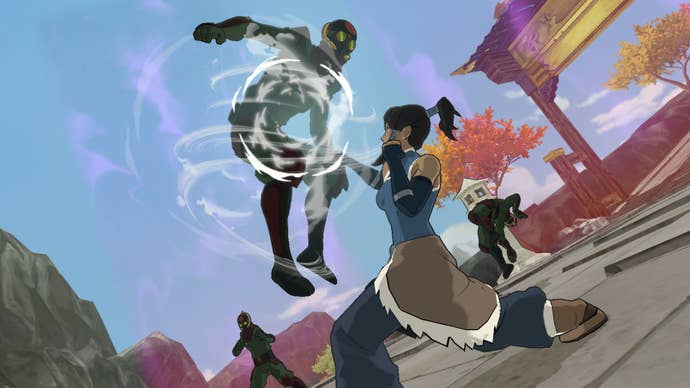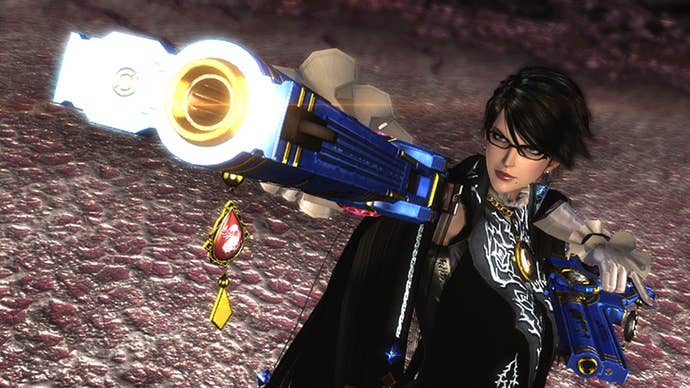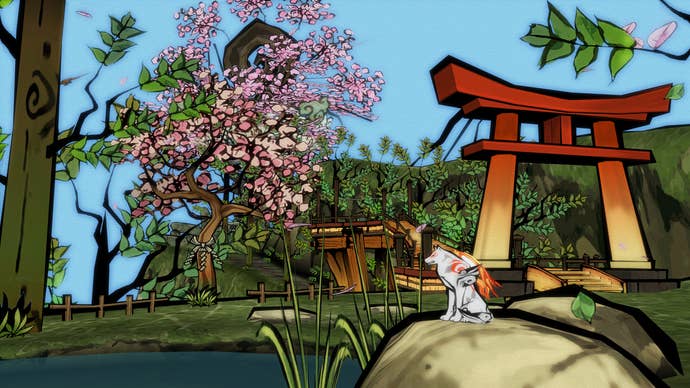Atsushi Inaba: Platinum Has No Future Without Its Own IPs
Freedom is Platinum's watchword as the studio deals with the harsh forces of independent game development.
This article first appeared on USgamer, a partner publication of VG247. Some content, such as this article, has been migrated to VG247 for posterity after USgamer's closure - but it has not been edited or further vetted by the VG247 team.
If I were to pick one word to describe Atsushi Inaba, it would be "efficient." He doesn't waste any words or actions, moving hurriedly place from place and speaking at a rapid clip - a habit, perhaps, that he's picked up in the course of overseeing Platinum's game development.
Foremost on his mind, perhaps understandably, is Platinum's present and future. Platinum has managed to keep busy, and the studio has a passionate following, but the pressure to succeed in the current space is more intense than ever. That pressure has pushed Platinum into taking on more and more contract work in recent years, as well as licensed game development.

I wanted to address this topic when I spoke with Inaba at BitSummit, but I was surprised how naturally it came up in our discussion. In talking about the future, Inaba is quite frank in talking about where Platinum needs to go. For instance, he readily admits that they are taking on projects like The Legend of Korra as a short-term measure only. "Our long-term goal is to be totally independent."
That, of course, will be a major challenge for Platinum. Owing to the always rising costs of major development, midsized independent studios like Platinum have become increasingly rare. And out of those studios, it's rarer still to see any of them focusing on traditional console development. It's easier for such studios to focus on one game that can be an evergreen success, like Robot Entertainment and Orcs Must Die.
One big difference between Platinum and other studios like it is that Platinum doesn't have any IPs to call its own. Even Bayonetta, which is closely associated with Platinum, belongs to Sega, Inaba says. And Inaba feels that Platinum must develop its own IPs and leverage them to have any success in the current environment.

"Because we don't have our own original IP, we don't have the chance to develop it, publish it. We're not used to the cycle of making one," Inaba says. "We're trying to get used to the cycle of making sequels."
Later, he adds, "The company doesn't really have a future unless we develop our own original IPs."
At the moment, Platinum is developing Scalebound - an open-world action game with strong RPG elements - which Inaba says belongs to Microsoft. As for whether Platinum has any new IPs of their own in development, Inaba says that nothing has been announced.
Despite Inaba's pessimism, it's still possible to detect a note of idealism in the way he talks about Platinum. For instance, in talking about Japanese indie development, Inaba speaks of the freedom they enjoy (freedom came up a lot in our conversation). Asked whether he considers Platinum to be part of that community, he responds, "Platinum is becoming bigger, so we're kind of in a limbo. But I feel like Platinum is part of that community."
Such a statement speaks volumes about what he considers Platinum's identity to be. Though commercial realities have forced them to pick up contract work and other projects, Platinum is at its core a group of veteran developers who believe strongly in making interesting game. They are the group who made Okami and Viewtiful Joe - critical darlings that sold poorly but developed large followings because they managed to be unique.

It's perhaps illuminating that when Inaba talks about how Platinum has changed since first opening its doors, he says, "When we first started, we had a lot more freedom to create what we wanted, but now we're working more with the community, listening to what they have to say, and keeping open those lines of communication."
Naturally, despite all this, Inaba downplays Platinum's focus on sales and commercial success. "Of course we want games that sell five or six million copies, but once you start focusing on sales, we lose some of that freedom. So right now we're focused on both."
Inaba's comments reinforce that it's a tough industry, and that studios like Platinum are naturally going to feel the heat without a parent company to back them up. But it's also easy to believe that Inaba is being sincere when he says that he wants Platinum to eventually move away from short-term contract work and build their own stable of games. In the end, it's the ethos the studio was built on: They don't want to have to answer to anyone.

